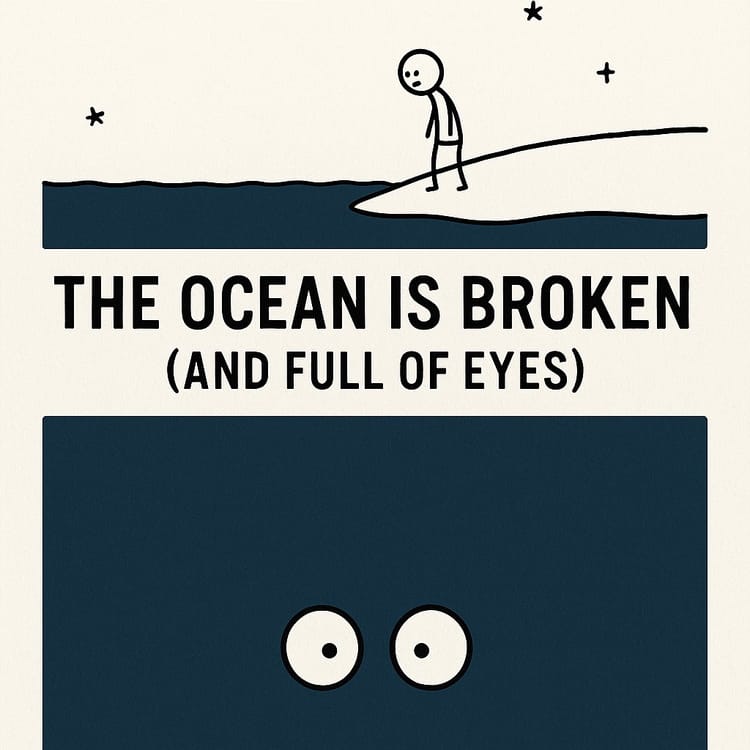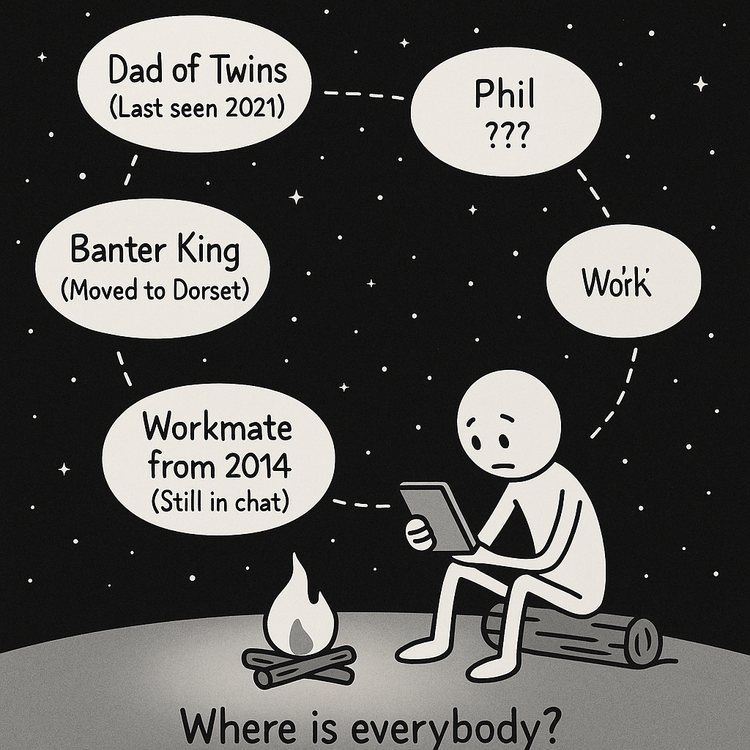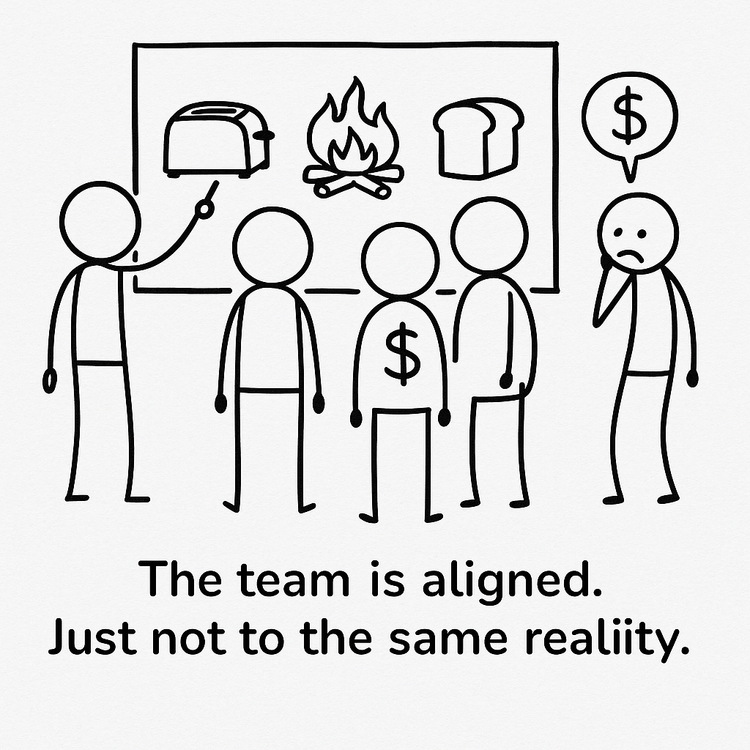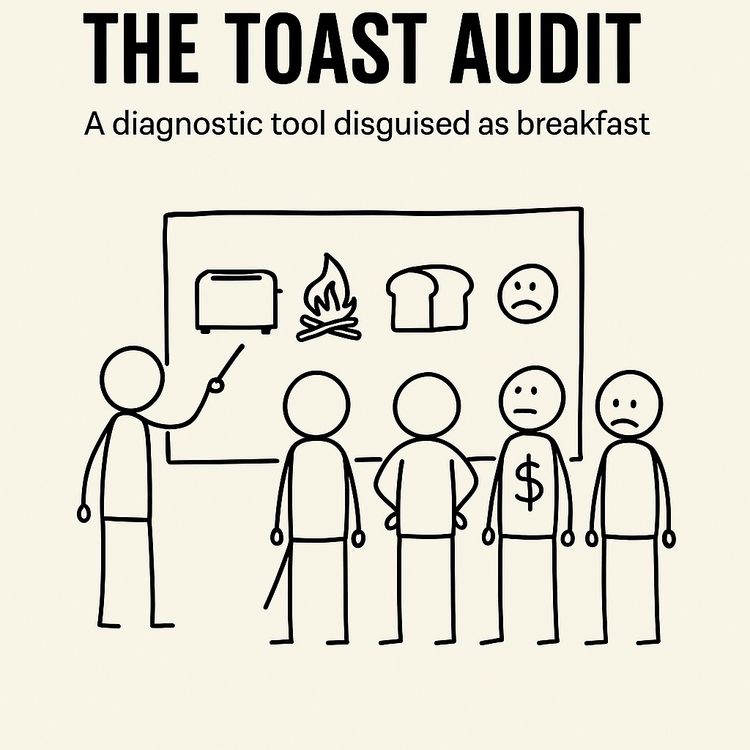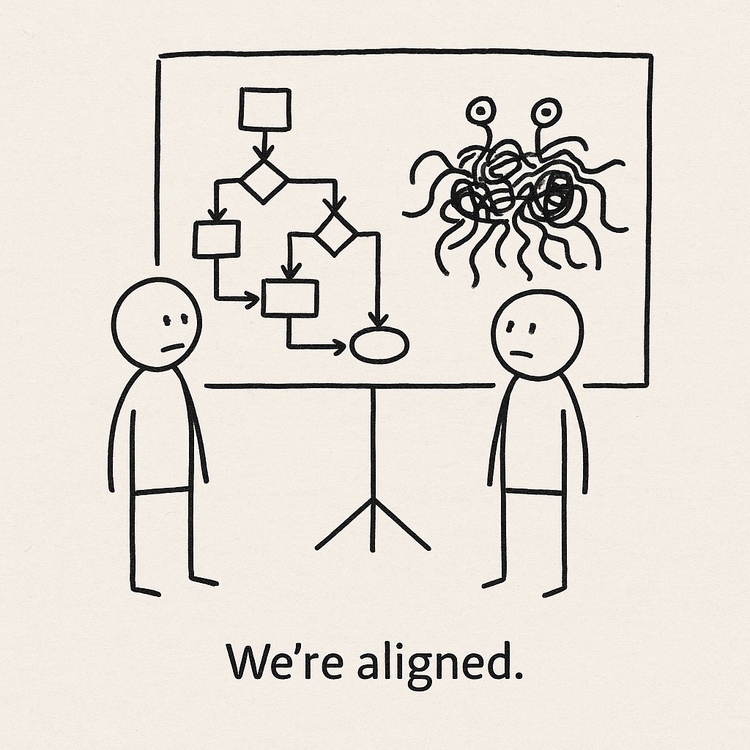The Day the Octopus Became a Father
The Octopus was already overwhelmed managing you. Then it got a baby. This is what happened next.
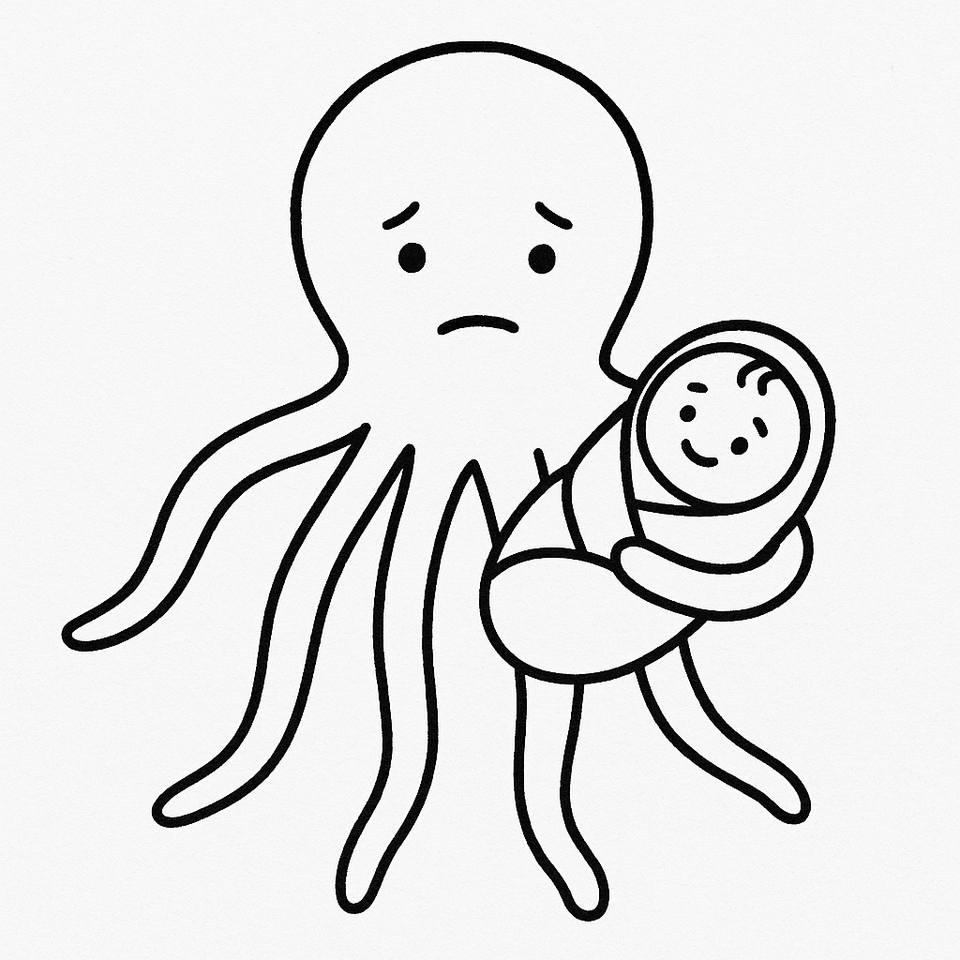
The Decision-Making Octopus, Part II
Read The Decision-Making Octopus — an 8-part series about internal chaos, emotional sabotage, and showing up anyway.
Explore the full series →
← Read Part I: The Decision-Making Octopus
Okay, so here’s the problem:
Up until now, your Octopus was doing okay. Not great - just sort of flailing its way through life like an over-caffeinated air traffic controller with too many screens and no training.
But then someone hands it a baby.
And that’s when the entire internal system breaks down.
Because suddenly the Octopus isn’t just in charge of your job, or your social battery, or whether or not to text back that one friend who’s weirdly intense about BBQs. It’s now in charge of a tiny human.
A human with no instructions.
No off switch.
And a face that looks at you like you're supposed to know what you’re doing.
Which you don’t.
